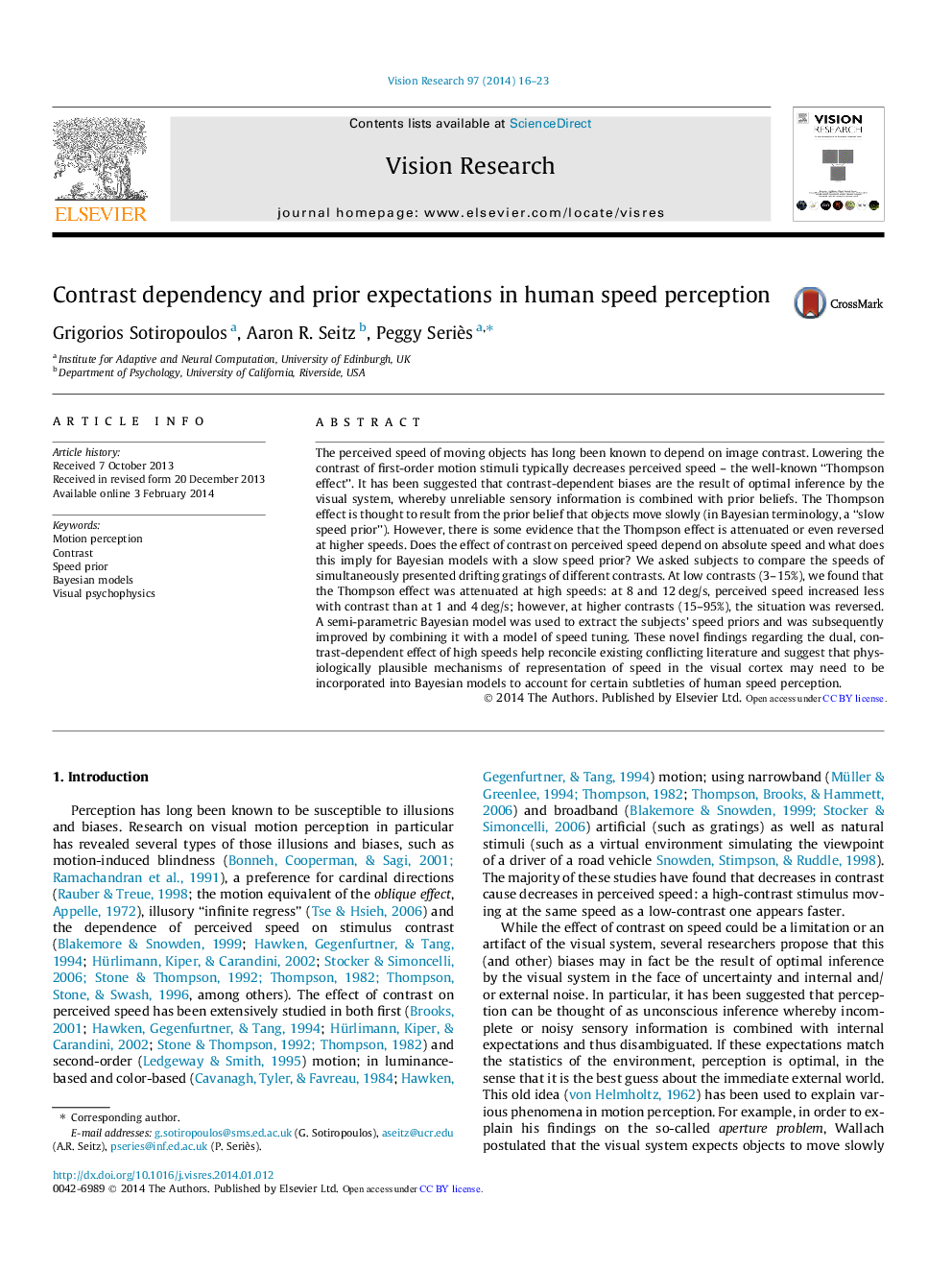| Article ID | Journal | Published Year | Pages | File Type |
|---|---|---|---|---|
| 6203535 | Vision Research | 2014 | 8 Pages |
â¢We asked subjects to compare the speed of moving gratings.â¢Perceived speed increases with visual contrast.â¢Whether this bias increases or decreases with speed depends on contrast levels.â¢A Bayesian model is used to extract individuals' speed prior.â¢Combined Bayesian + ratio model describes data better than either model alone.
The perceived speed of moving objects has long been known to depend on image contrast. Lowering the contrast of first-order motion stimuli typically decreases perceived speed - the well-known “Thompson effect”. It has been suggested that contrast-dependent biases are the result of optimal inference by the visual system, whereby unreliable sensory information is combined with prior beliefs. The Thompson effect is thought to result from the prior belief that objects move slowly (in Bayesian terminology, a “slow speed prior”). However, there is some evidence that the Thompson effect is attenuated or even reversed at higher speeds. Does the effect of contrast on perceived speed depend on absolute speed and what does this imply for Bayesian models with a slow speed prior? We asked subjects to compare the speeds of simultaneously presented drifting gratings of different contrasts. At low contrasts (3-15%), we found that the Thompson effect was attenuated at high speeds: at 8 and 12Â deg/s, perceived speed increased less with contrast than at 1 and 4Â deg/s; however, at higher contrasts (15-95%), the situation was reversed. A semi-parametric Bayesian model was used to extract the subjects' speed priors and was subsequently improved by combining it with a model of speed tuning. These novel findings regarding the dual, contrast-dependent effect of high speeds help reconcile existing conflicting literature and suggest that physiologically plausible mechanisms of representation of speed in the visual cortex may need to be incorporated into Bayesian models to account for certain subtleties of human speed perception.
